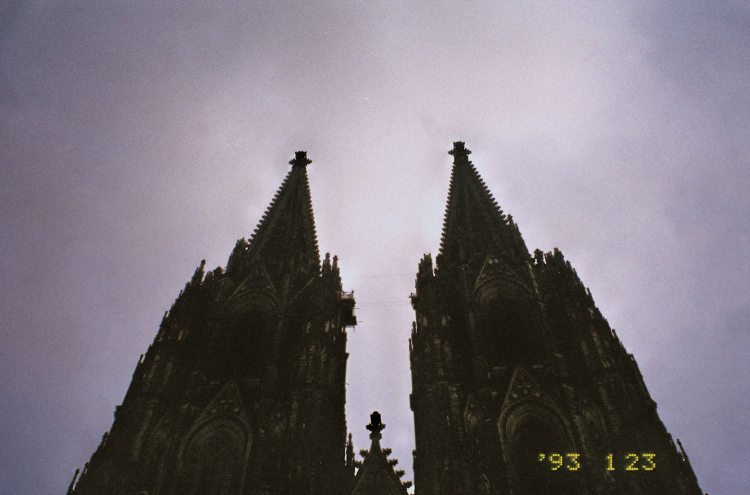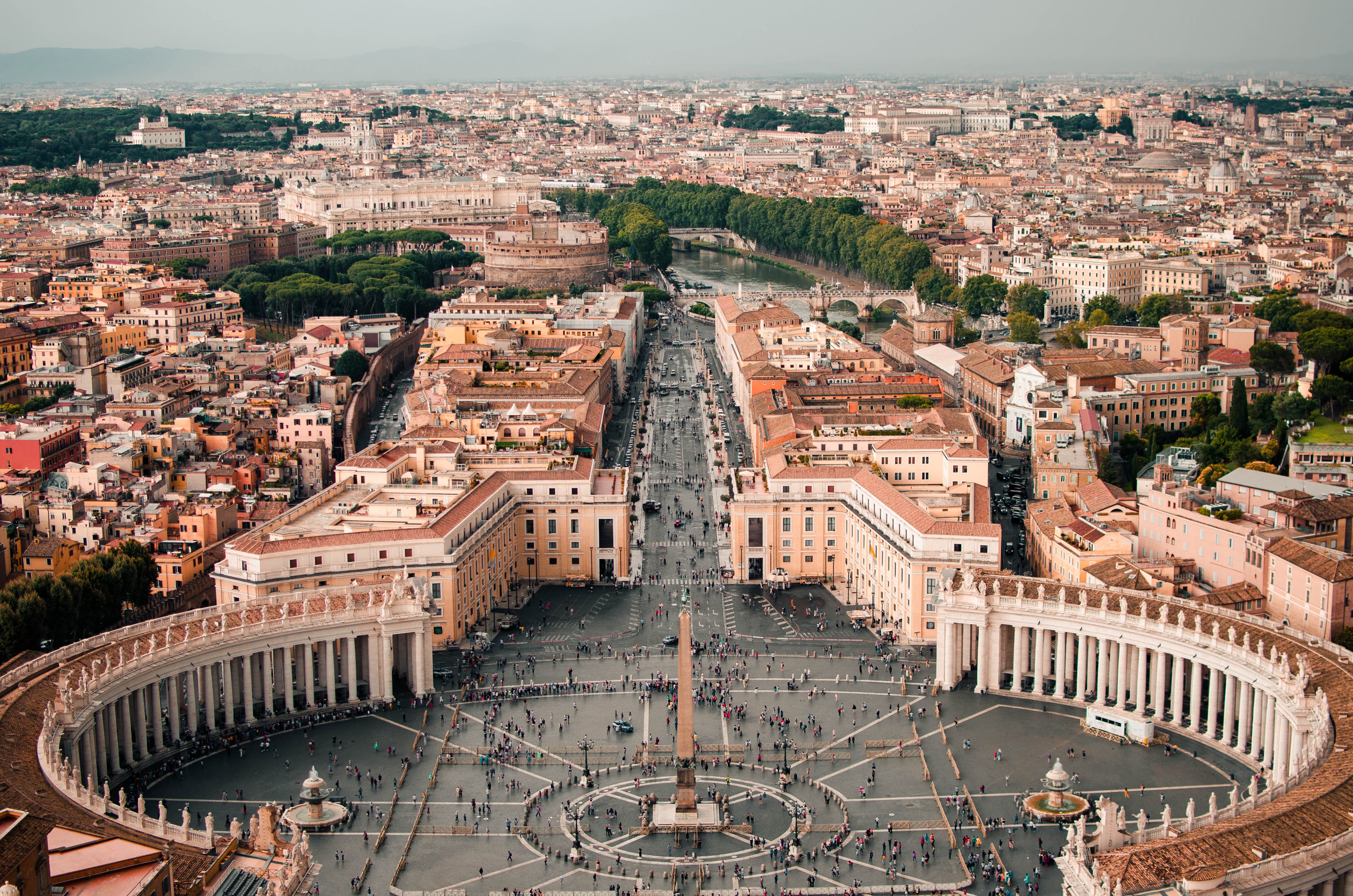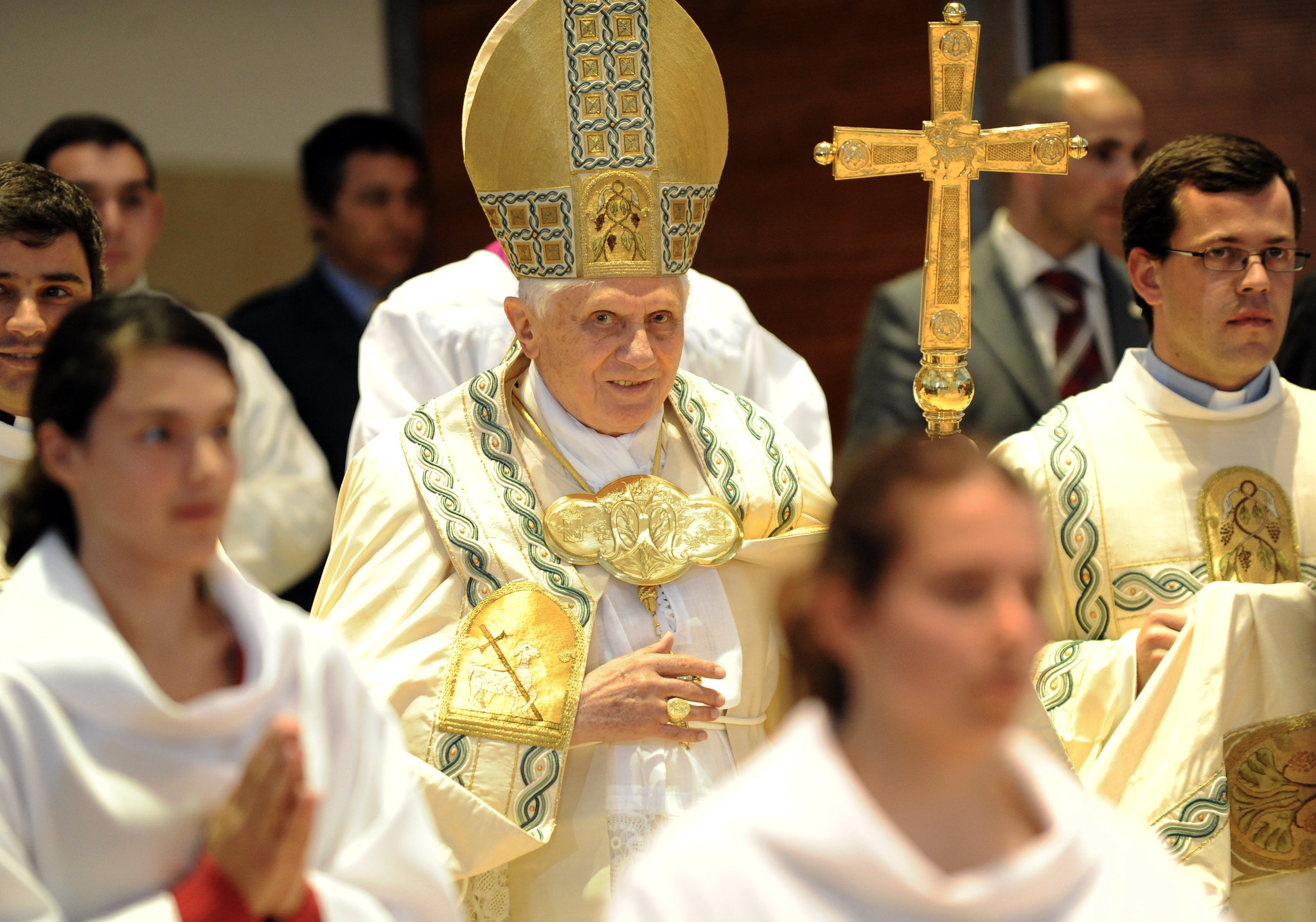Abuse, Apology & no Accountability

In the past few decades, terrifyingly high numbers of child abuse were uncovered in the Roman catholic church and shined a light on what is happening behind church walls and is covered up in the safety of confessionals. Uncovered sacred secrets are making catholics rethink their relationship to the church.
Despite cases of abuse being exposed on almost every continent, the topic is dealt with nationally much more than institutionally - clergy in high positions often push the responsibility on a single priest or bishop rather than vouching for the church as a whole. Most recently, even former pope Benedict XVI has fallen into disrepute about “accidents that occurred '' while he was archbishop of Munich. Apologies were given, prayers were said, but blame is still being rejected.
“Church is just power, and power and abuse always go hand in hand,” says Thomas d’Alquen, 49, who works at a communication agency in Cologne. As the son of the organ player and sacristan of a church in a small town in Germany, he grew up catholic, “very catholic,” he says. “In recent times one can get the impression that the church is actually dealing with itself a little, they’re starting to take accusations seriously. But it is way too late, it’s a point of time where they have no other choice.”
D’Alquen has seen no attempt to improve on the problems that made him leave the church in the late 90s. He first learned about child abuse in the church few years earlier, when rumors about a priest from his hometown started circulating after he committed suicide. Having spent a lot of time with him as a child, he never believed the rumors. “I knew him well as a person,” he says. “I wouldn’t be surprised if he was homosexual, but I can’t imagine that he would have ever harmed a child.”
In France alone, clergy of the catholic church have abused about 216,000 children in the past 70 years, the Commission indépendante sur les abus sexuels dans l'Église, or short Ciase, found out. In their report published in October of 2021, they state that around 3,000 abusers were active in the French catholic church since the 1950s. While Pope Franziskus’ “first thoughts are with the victims,” according to a statement by the Vatican, his second thoughts don’t seem to be searching for a solution.
Image Credit: Unsplash/Caleb MillerSimilarly high numbers of abuse have been uncovered in many countries around the world where the Catholic church left its mark, including the United States, Argentina, Germany and Australia. While covered up cases are being exposed around the world, the issue is being dealt with on a small scale with little action taken by the Vatican, granting guilty Priests freedom without atoning for their sins. As cases of sexual abuse are being uncovered, the mental abuse committed by the church might never be exposed. “What belief does, what religion does, and especially the catholic church, is to use guilt on a huge scale,” d’Alquen says. “You have to feel bad when you’re homosexual, you have to feel bad because you don’t work enough, because you’re a man, because you’re a woman.” He can only recommend to free oneself from the constraint of religion.
“If it wasn’t for the guilt and pain, the power would vanish too,” d’Alquen says. “And then they wouldn't get away with all of this!”, his girlfriend Fatima Ferreira, 46, calls in. The non-religious field account executive was born into a catholic family in Portugal, and a southern society where “the moral expectations that weigh on women especially is so extreme.” She described her everyday as a child as seeing women pray, men drink, and priests preaching exactly what is right and wrong. "They stand in the pulpit and tell you to obey God, and the same men lay hands on children."
The same hypocrisy and capitalization of guilt also led Briana Romero to reconsider her relationship with religion. While the church preaches a strict moral code, even those in service of the church often don’t comply with it themselves. Romero recalls moments of feeling judged in church rather than receiving the brotherly love that was being preached. “It’s tough to look at the things the church is doing individually,” she says. “Because they do good things and give a lot of people peace, but on the other side there’s all this abuse.” The 25 year old fashion student still goes to pray in church but doesn’t want to “turn a blind eye” to the pain that the catholic church is causing. “People should be held accountable,” she says. “And confession is not enough to clear accountability”.
It is because of confession that stories of abuse mostly aren’t kept as secrets, other priests being aware of the crime without taking actions. As confession is a place to get cleared of sins, the sacramental seal does not allow catholic priests to report crimes admitted in confession to the police or anyone else. In most countries, confession in church can’t be used as evidence in court. In that way, the church stands above the law, even in secular countries like France.
“From there on it is not just a problem of the Institution Church itself, but also way too much respect of the society, the justice system and law enforcement towards some Dignitaries,” says Thomas d’Alquen. Instead of reporting guilty priests, the catholic church prefers to take matters into their own hands, often only transferring priests to a different parish and covering the case up. “It’s time for the state to wake up and limit the power of the church,” d’Alquen says. He does not think that “the church will be personally self-reflective enough to take responsibility”.
In fact, Former Pope Benedikt XVI. just admitted to making false claims, but rejected blame for not acting accordingly on four different cases of child abuse while he was archbishop of Munich. In a letter released by the Vatican, Benedikt XVI. expresses “great pain and the sincerest plea for apology” about the mistakes that occurred under his responsibility, but names ignorance as the reason for his wrongdoing. “Amid the massive work of those days – the development of my position – an oversight occurred,” he said, hoping for forgiveness given his mistakes were unintentional. That this oversight was used to “cast doubt on my truthfulness, and even to label me a liar” hurt him deeply.
Photo Credit: flickr/The Papal VisitBenedikt promised prayers and said that he learned to understand that “we get drawn into the vast guilt, if we want to turn a blind eye or not handle things with the right responsibility, like it happened too often and continues to happen,” but the wording throughout the letter carefully avoids responsibility. “It’s time for the state to wake up and pull the church some teeth,” d’Alquen say. “Because I don’t think the church will change paths themselves. There is too much power and money at stake.” He says he sees things like John Lennon and wished organized religion would disappear completely: “but I know that won’t happen”.
Whether the catholic church will start making serious amends or hold on to its elitist secrecy can only be told by time. The power of the church dwindling however sounds unrealistic. “We are just the rebellious Europeans,” says Fereira. “In other places, like in South America, the Catholic church still has enormous influence. They will prevail and probably won’t change.” Romera on the other hand thinks that the catholic church could move in the right direction if the community started talking about the topics usually kept quiet about. “I think churches are becoming a little bit more progressive,” she says. “But I’m also an optimistic person.”
With church enrollment numbers constantly sinking in Europe, the catholic church is losing power over one of its historically most influenced places. In a world that moves so fast, the church must understand that not every problem can be solved with 2,000 year old solutions, and that the time of looking away is over.









